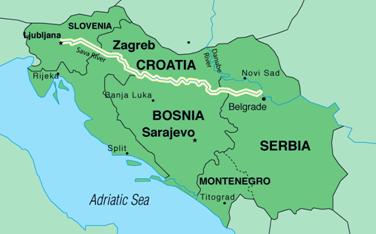Assessment of hazardous chemical contamination in the Sava River basin NATO Science for Piece Project (SARIB)

Principal investigator
M
A
M
A
The Sava River represents natural north-western boundary of the Balkan Peninsula, and flows through four countries: Slovenia, Croatia, Bosnia and Herzegovina and Serbia, connecting three European capitals: Ljubljana, Zagreb and Belgrade. For these four countries, the basin catchment area (95.719 km²) is about 40% of their land and source of more than 80% of total available water. Therefore, securing sustainable utilization, management and environmental protection of the Sava River basin water and related resources is a strategic priority for all riparian countries.
The key environmental problem, which is common for all transition countries in the Sava and Danube River basins, is the release of contaminated untreated effluents from municipalities and industrial facilities that are greatly dominated by old and environmentally unfriendly technologies. Despite such an unfavourable situation, the monitoring activities and water quality assessments in most of the countries of the region are restricted to a very limited number of potentially hazardous contaminants. This lack of environmental infrastructure, expertise and institutional mechanisms, needed for a scientifically based water management, including the issue of transboundary impacts of hazardous contamination, causes serious environmental concerns and associated security risks in the basin. By developing and applying a state-of-the-art approach for the identification of priority pollutants, this project aims to address that critical deficiency in the current approach to water management of the Sava River basin.

